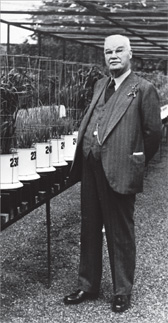Kate is best known for her unique “doughnut economics” model, which emphasises the need to balance humanity’s needs with the health of the planet. She is the author of the internationally bestselling book Doughnut Economics: Seven Ways to Think Like a 21st Century Economist, a Professor of Practice at Amsterdam University of Applied Sciences, a Senior Teaching Fellow at Oxford University’s Environmental Change Institute, and a frequent contributor to the Guardian, New Statesman, and various TV and radio programmes.
Speaking about the upcoming lecture, Kate said: “I am honoured to be giving the 2025 TB Macaulay Lecture, and very much look forward to sharing the concepts, tools and practice of Doughnut Economics - and hearing the audience's reflections and suggestions for how such practice can be spread at the speed and scale that these times demand."
Joe Moore, Chair of the Macaulay Development Trust said, “As a country rich in both nature and resources, it’s essential for Scotland to strike a balance between aspiring to provide a high quality of life for all and at the same time protecting the environment on which that aspiration depends. We’re delighted to have an economist with Kate’s international prestige joining us to speak about Doughnut Economics. I hope you will join us to hear her thoughts and ambitions on how people and the living planet can thrive together."
Professor Colin Campbell, CEO at The James Hutton Institute said, "We're very excited to announce Kate as the speaker for the 46th TB Macaulay Lecture. Her understanding and experience of economics, in particular Doughnut Economics, will be thought-provoking for all in attendance. We can't wait for what is sure to be another incredible and informative talk, bringing academia and the public together on the big issues affecting our land and people."
The lecture will take place at Edinburgh International Conference Centre. It begins at 6pm, with a pre-lecture exhibition available to view from 5pm. All ticket holders will also be invited to attend the post-lecture reception at 7.30pm.
Register now


 The annual T.B. Macaulay Lecture is held to honour the vision of
The annual T.B. Macaulay Lecture is held to honour the vision of